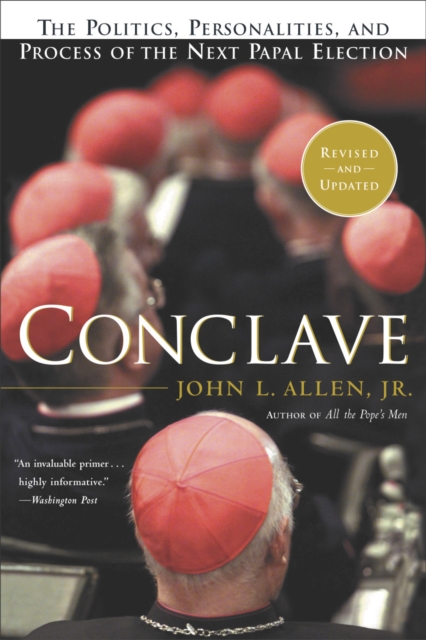
Conclave EPUB
by John Allen
EPUB
Description
A captivating insider’s guide to the politics and personalities that will have a tremendous impact on one of the world’s most secretive and important events–the election of a pope.
The next time a conclave unfolds in Rome, some 6,000 journalists are expected to descend on the Eternal City to cover the death of John Paul II and report on the election of his successor. The man in white who emerges from the Sistine Chapel at its conclusion will automatically become one of the most important figures on earth, a leader who commands a unique combination of political and spiritual power. Depending on how he chooses to exercise that power, governments and political systems may rise or fall, religious wars may heat up or abate, and the Church may undergo a radical transformation–from changes in its stances on such issues as sexuality, the place of women in the Church, to the role of the papacy itself.
Conclave is a fascinating look at the election process and at what this headline-making occasion will mean to the world. John L. Allen, Jr., takes readers behind the scenes to reveal the issues, parties, and people most likely to determine the outcome. Setting the election within a broader context, he explains why it matters who becomes pope, discusses their role in the modern world, and examines the issues that will form the agenda of the next papacy.
Although the book is not intended as a “handicapper’s guide,” Allen does offer his own informed list of the “top twenty” contenders for the position. He creates, as well, a classification system that clarifies the differences among the informal political parties that exist within the College of Cardinals, the body of 130-plus men who will elect John Paul II’s successor. In conclusion, he presents a critical, independent-minded profile of each of those cardinals–for one of them will certainly be the new pope.
Information
-
Download - Immediately Available
- Format:EPUB
- Publisher:The Crown Publishing Group
- Publication Date:23/07/2002
- Category:
- ISBN:9780385504560
Information
-
Download - Immediately Available
- Format:EPUB
- Publisher:The Crown Publishing Group
- Publication Date:23/07/2002
- Category:
- ISBN:9780385504560






